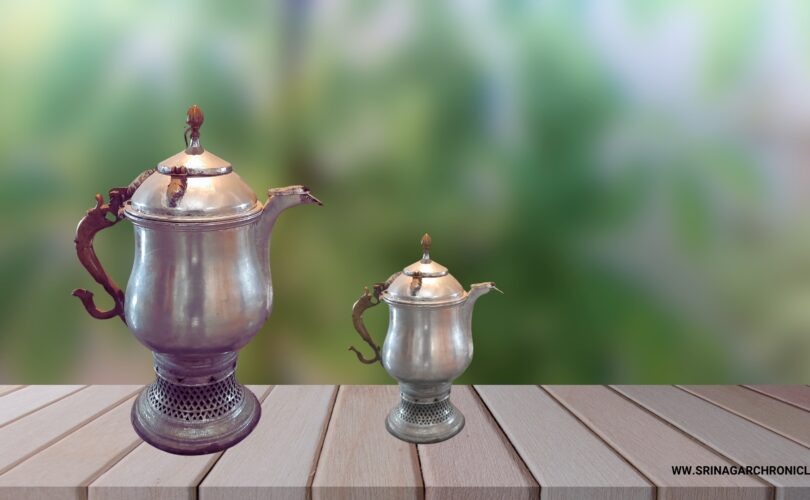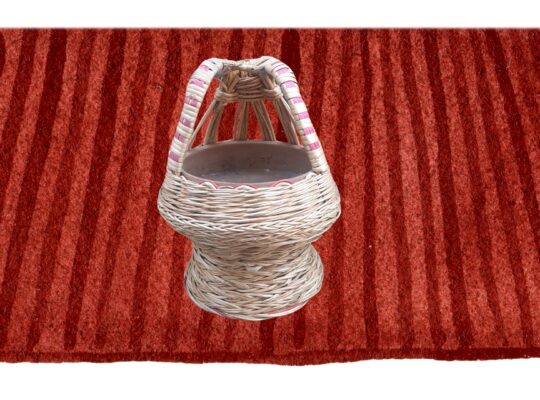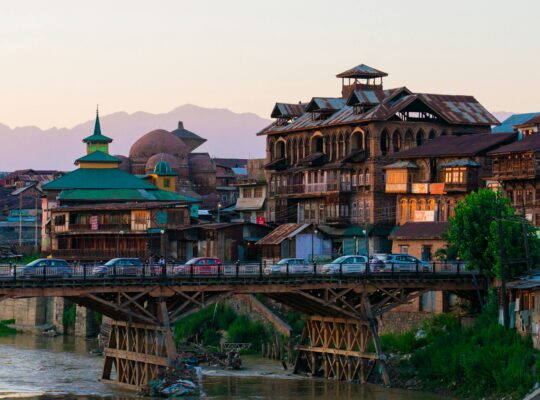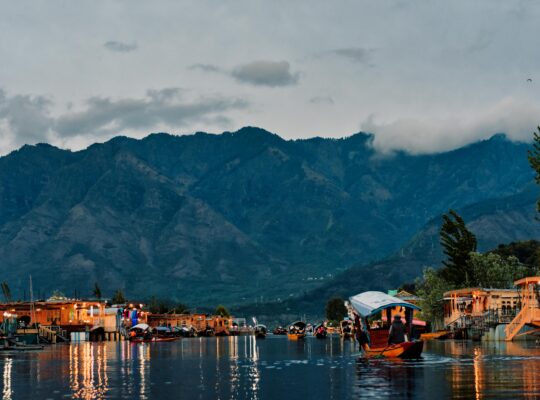Introduction to Samovar
Samovar, a traditional Russian tea urn, is more than just a vessel for brewing tea; it’s a symbol of hospitality, warmth, and communal gatherings. With its roots tracing back to the 18th century, the samovar has become an integral part of various cultures beyond Russia, including Kashmir. In this article, we delve into the captivating world of the Kashmiri samovar, exploring its unique attributes, cultural significance, and much more.
Understanding Kashmiri Samovar
The Kashmiri samovar stands out for its distinctive design and craftsmanship, setting it apart from its Russian counterpart. Unlike conventional samovars, Kashmiri ones boast intricate patterns and are often adorned with intricate engravings, reflecting the rich cultural heritage of the region. Historically, the samovar has been an emblem of hospitality and social gatherings, cherished by generations for its symbolic value.
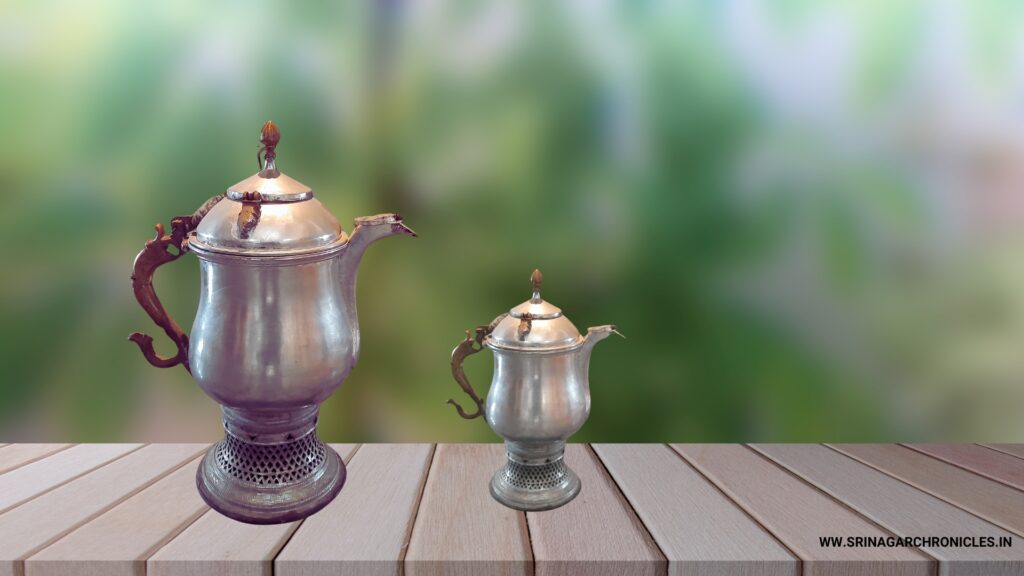
Design and Structure
Crafted from high-quality copper or brass, the Kashmiri samovar features a bulbous base with a tall, slender chimney and a spigot for dispensing tea. Its elegant silhouette is complemented by ornate handles and embellishments, making it a prized possession in Kashmiri households. Each samovar is a masterpiece of artistry, showcasing the skill and creativity of local artisans.
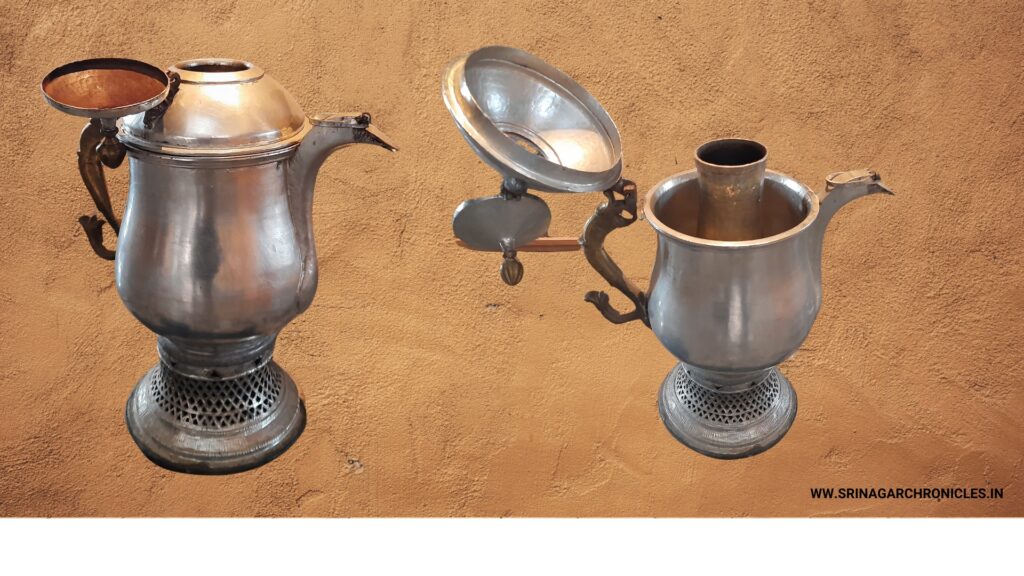
Functionality
The functioning of a Kashmiri samovar is akin to that of its Russian counterpart, albeit with slight variations. Traditionally, a charcoal fire is lit in the central chamber of the samovar, heating the water contained within. As the water reaches boiling point, it is used to brew strong, aromatic Kashmiri Kahwa tea, infused with spices such as cardamom, cinnamon, and saffron. The samovar’s design ensures a steady supply of hot water, allowing for continuous brewing over an extended period.
Cultural Importance
In Kashmiri culture, the samovar holds a sacred place, symbolizing warmth, hospitality, and camaraderie. It is an indispensable part of social gatherings, religious ceremonies, and festive occasions, where it serves as a centerpiece, inviting guests to partake in the joyous festivities. The ritual of preparing tea using the samovar is steeped in tradition, passed down through generations as a cherished cultural heritage.
Evolution and Modernization
While the essence of the Kashmiri samovar remains unchanged, modern iterations have emerged to cater to contemporary tastes and lifestyles. Today, one can find electric samovars equipped with heating elements, offering convenience without compromising on authenticity. Despite these innovations, traditional Kashmiri samovars continue to hold sway, revered for their timeless elegance and cultural significance.
The Art of Making Tea
Brewing tea with a samovar is an art form in itself, requiring skill and precision. Traditional recipes often involve a blend of green tea leaves, aromatic spices, and saffron, infused with the rich flavors of Kashmiri cuisine. The brewing process is meticulous, with each step aimed at achieving the perfect balance of flavors and aromas, resulting in a cup of tea that is both invigorating and soul-soothing.
Kashmiri Samovar in Literature and Art
The allure of the Kashmiri samovar extends beyond its utilitarian purpose, inspiring artists, poets, and writers alike. Throughout history, it has been immortalized in literature, paintings, and other forms of artistic expression, serving as a symbol of tradition, hospitality, and cultural identity. From the verses of renowned poets to the intricate brushstrokes of painters, the samovar continues to captivate the imagination of creators worldwide.
Global Recognition and Adoption
While traditionally associated with Kashmir, the allure of the samovar has transcended geographical boundaries, gaining popularity in diverse cultures around the globe. Its unique design, coupled with the ritualistic tea-brewing process, has made it a sought-after item among enthusiasts of exotic cuisines and cultural artifacts. Today, one can find Kashmiri samovars adorning homes and establishments worldwide, serving as a testament to their enduring appeal.
Preservation Efforts and Cultural Heritage
As custodians of cultural heritage, efforts are underway to preserve and promote the tradition of Kashmiri samovar making. Various organizations and initiatives are dedicated to safeguarding the craftsmanship and skills associated with its production, ensuring that future generations continue to appreciate its significance. By supporting local artisans and artisans, we can contribute to the preservation of this invaluable cultural heritage for posterity.
Economic Significance
Beyond its cultural value, the Kashmiri samovar also holds economic importance, providing livelihoods to countless artisans and craftsmen. The intricate designs and meticulous craftsmanship involved in its production contribute to the region’s economy, attracting tourists and collectors alike. Moreover, the export of Kashmiri samovars has emerged as a lucrative business, further bolstering the local economy and promoting cultural exchange on a global scale.
Tourism and Kashmiri Samovar
For tourists visiting Kashmir, the samovar serves as a tangible symbol of the region’s rich cultural heritage, offering insights into its traditions and customs. Many visitors are drawn to the bustling markets, where they can witness artisans at work, shaping raw materials into exquisite samovars. Additionally, the souvenir industry has flourished, with replicas of Kashmiri samovars serving as mementos for travelers seeking to capture the essence of their Kashmiri experience.
Challenges and Future Prospects
Despite its enduring appeal, the Kashmiri samovar faces several challenges in the modern era. Environmental concerns, changes in consumer preferences, and competition from mass-produced alternatives pose threats to its sustainability. However, with concerted efforts from stakeholders and enthusiasts, there is hope for the continued preservation and promotion of this cherished cultural artifact. Innovation and adaptation are key to ensuring that the Kashmiri samovar remains relevant in the years to come.
The information provided on this blog ” www.srinagarchronicles” is for general informational purposes only and should not be considered as professional advice. We do not guarantee the accuracy, completeness, or reliability of any information on this blog. Any action you take upon the information presented on this blog is strictly at your own risk. We are not liable for any losses or damages in connection with the use of this blog.

